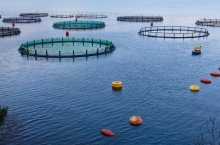McGill, UCLA study of low- and middle-income countries shows paid maternity leave policies could help prevent infant deaths
For each additional month of paid maternity leave offered in low- and middle-income countries (LMICs), infant mortality is reduced by 13%, according to a new study by researchers from McGill University and UCLA Fielding School of Public Health.














